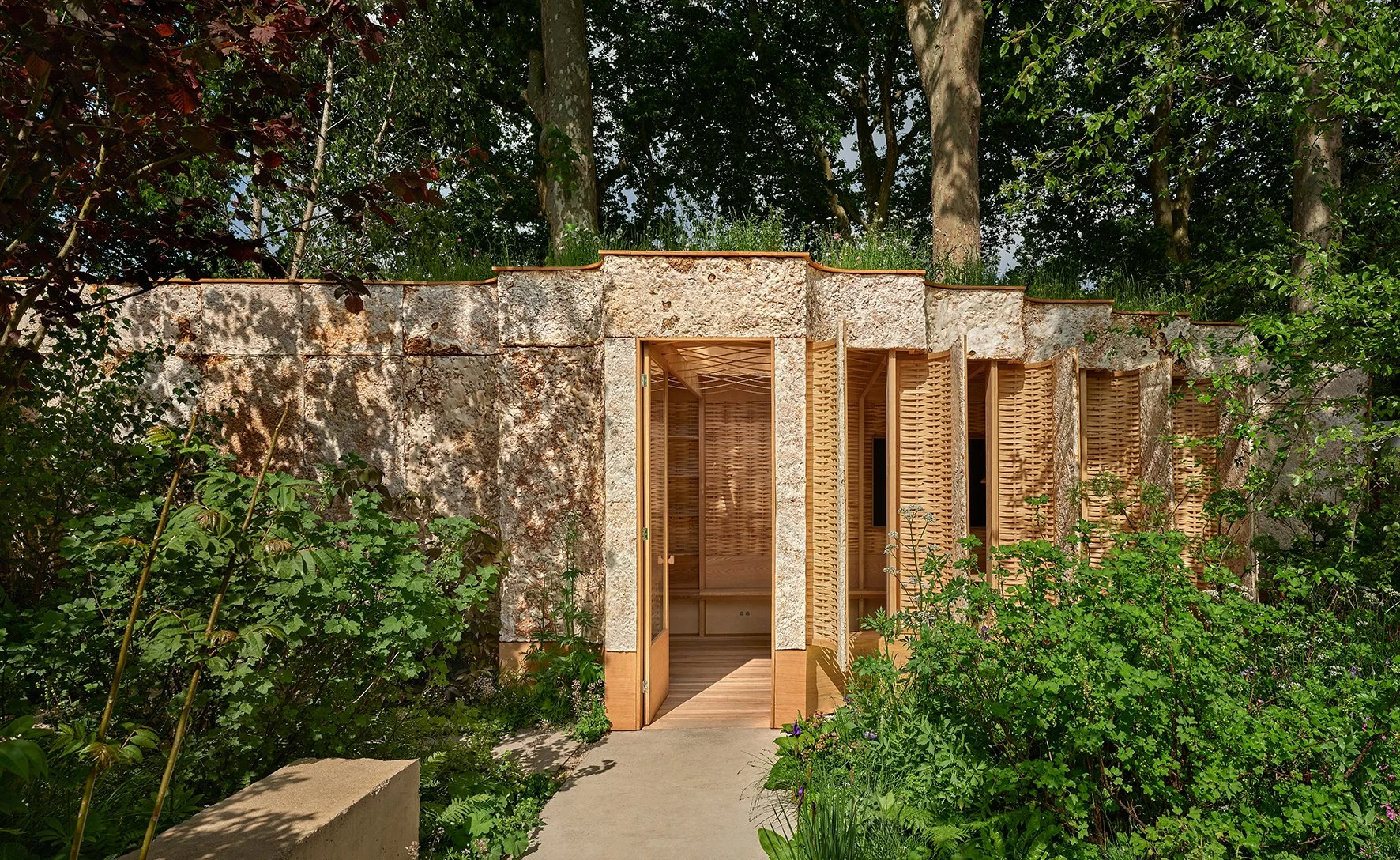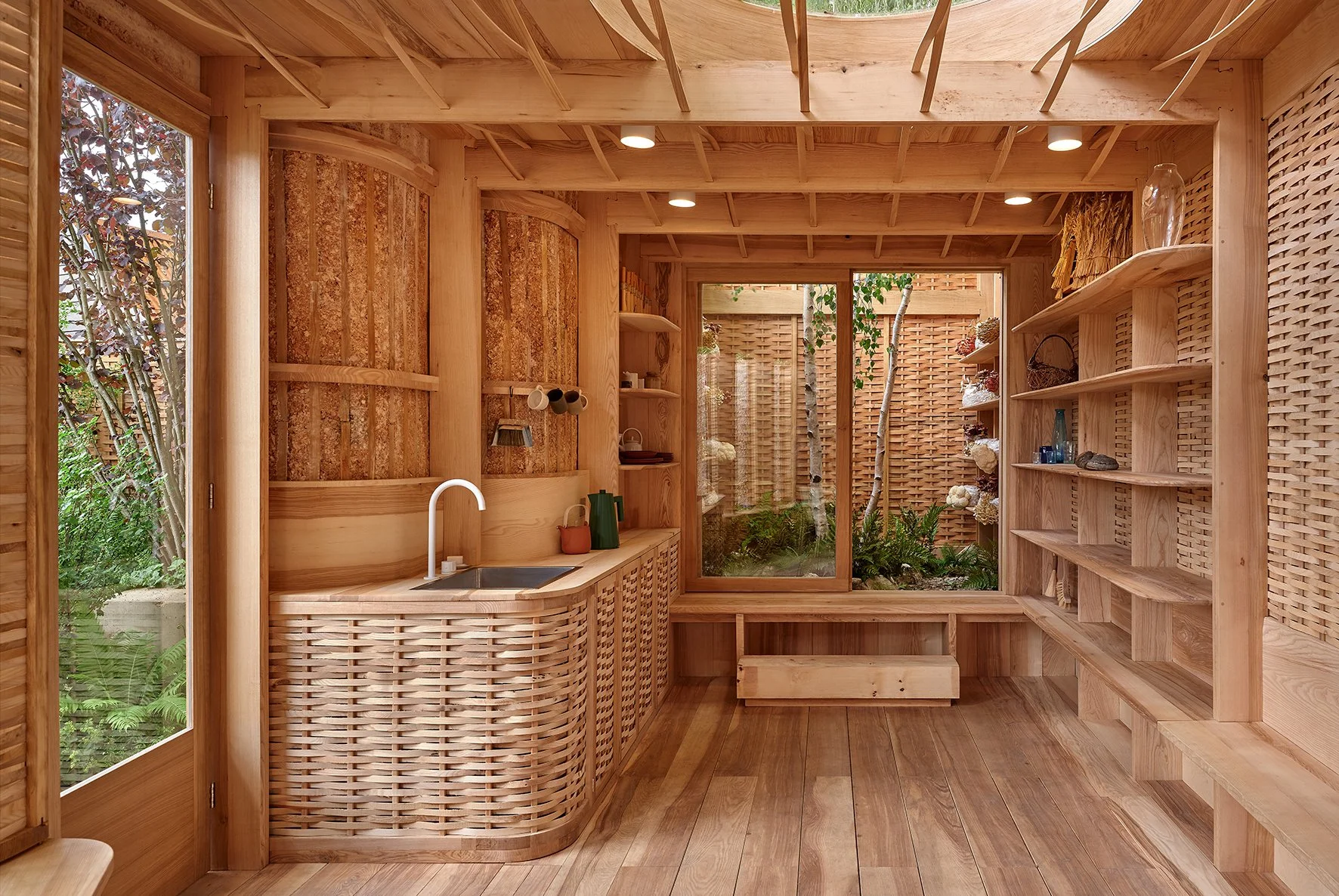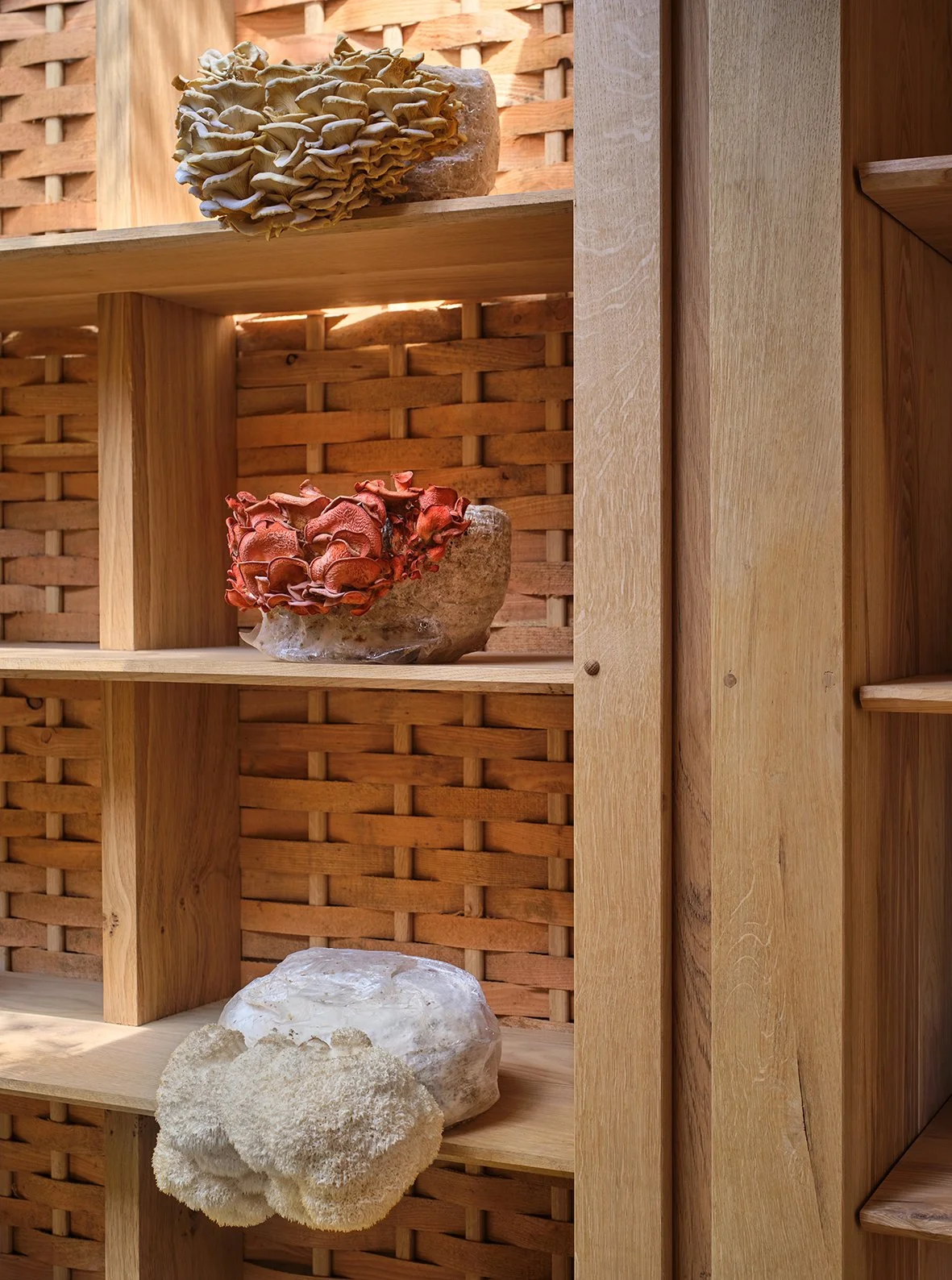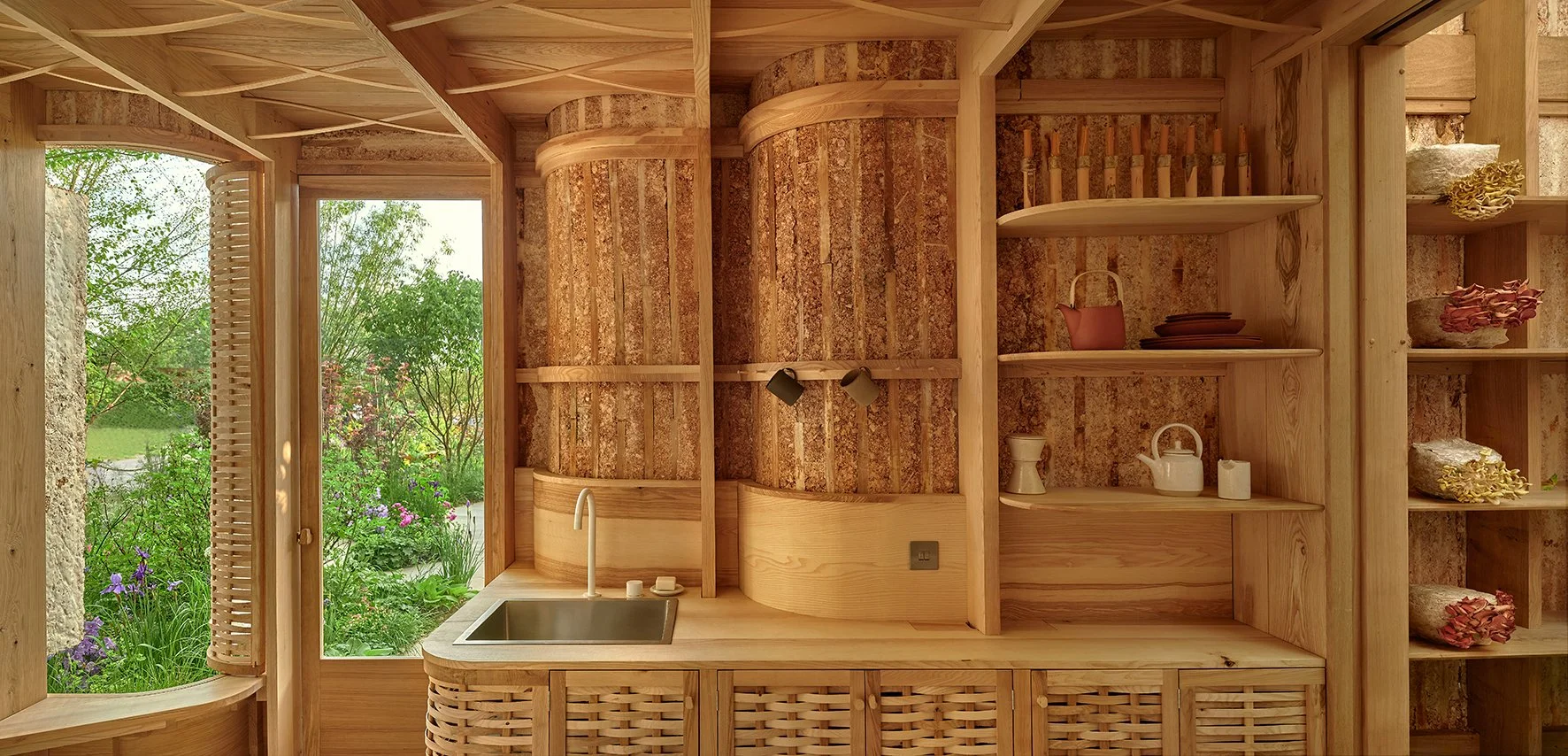A first of its kind, The Intelligent Garden marries nature with technology, regenerative biodegradable materials with cutting-edge innovation and ancient craft with modern design.
We created the pavilion in close collaboration with Tom Massey and Je Ahn from Studio Weave, a structure that embodies our belief in working in harmony with the natural world. Crafted from timber and mycelium, an extraordinary material, that we grow by hand in our Kent mycelium lab by inoculating woodchip with fungal spores. This was the first time that we scaled mycelium blocks to form part of a larger structure, having previously only used it in our lighting collections. Naturally biodegradable, the blocks will last between six to eight years before breaking down.
The structure of the mycelium-clad pavilion itself was crafted from biodegradable materials that we sourced from trees due to be felled because of Ash Dieback, a disease that weakens and eventually kills ash trees.
Our team brought the structure to life, patiently growing the mycelium blocks by hand and carefully building the pavilion itself. We’re incredibly proud of the collective effort behind this innovative and beautiful project.
The result is a quiet, innovative space. Louvred panels filter light and reveal shifting views into the surrounding garden, inviting stillness, reflection, and a renewed connection with the living world around us.
With support from Avanade, The Intelligent Garden is the first RHS Chelsea garden to feature embedded AI, showcasing cutting-edge technology that hints at the future of urban garden management. It presents a visionary fusion of nature entwined with innovation, reimagining how we might design, maintain, and interact with green spaces in the gardens of tomorrow.
The Avenade garden employs advanced AI, which quietly observes the garden’s rhythms. With sensors carefully placed to gather ongoing data on growth, moisture, soil health, and weather patterns. Through a custom-built website, visitors can then engage in one-on-one conversations with the trees via an AI-powered ‘TreeTalk’ feature, allowing them to learn about each tree’s unique needs and overall well-being. This data listening allows users to understand nature’s subtle patterns and respond with intelligent, data-informed guidance, opening a new chapter for gardening that is both responsive and deeply sustainable.
Visually, the garden is a beautifully layered, immersive environment. Twenty-one trees and large shrubs frame the space, including climate-resilient species such as Tilia henryana and Betula nigra, alongside edible rarities like Chinese date (Ziziphus jujuba), Sichuan pepper (Zanthoxylum simulans), and Chinese cedar (Toona sinensis). Beneath this canopy, a rich, biodiverse tapestry of planting spills out in shades of yellow, deep purple, and electric pink, inspired by the layered vibrancy of a natural woodland floor.
The design follows a forest-garden approach, emphasising biodiversity, climate resilience, with the inclusion of edible plant species.
The garden won Best Construction at Chelsea Flower Show and was awarded a Gold Medal at RHS Chelsea Flower Show 2025.
Designed by Tom Massey and Je Ahn in collaboration with Sebastian Cox. Photographs by Eva Nemeth.
Collaborate > Mycelium Pavillion at the Chelsea Flower Show















Get in touch.
For more information or images of our work on the Mycelium Pavillion please contact
studio@sebastiancox.co.uk.